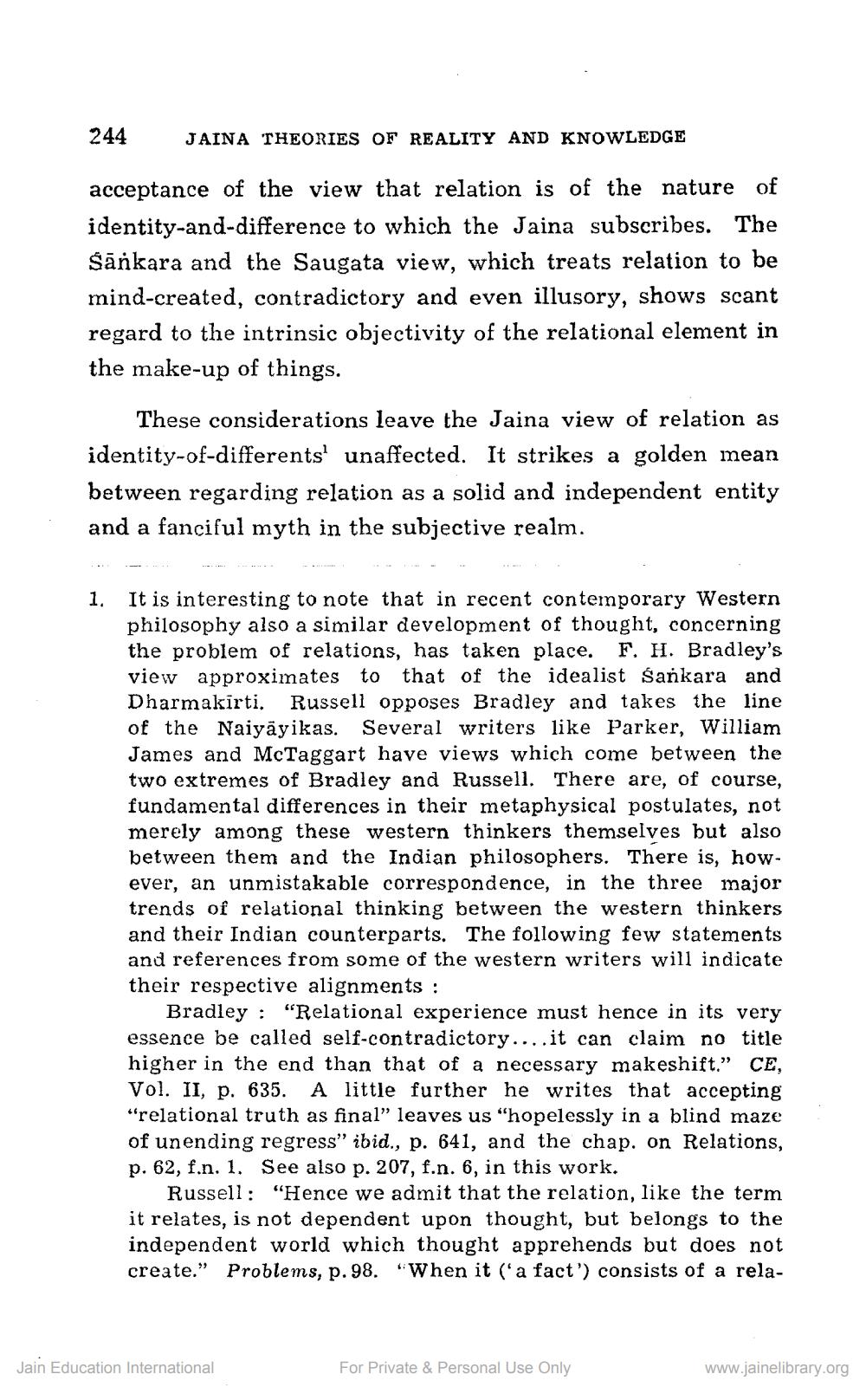________________
244
JAINA THEORIES OF REALITY AND KNOWLEDGE
acceptance of the view that relation is of the nature of identity-and-difference to which the Jaina subscribes. The Sankara and the Saugata view, which treats relation to be mind-created, contradictory and even illusory, shows scant regard to the intrinsic objectivity of the relational element in the make-up of things.
These considerations leave the Jaina view of relation as identity-of-differents' unaffected. It strikes a golden mean between regarding relation as a solid and independent entity and a fanciful myth in the subjective realm.
1. It is interesting to note that in recent contemporary Western
philosophy also a similar development of thought, concerning the problem of relations, has taken place. F. H. Bradley's view approximates to that of the idealist sankara and Dharmakirti.Russell opposes Bradley and takes the line of the Naiyāyikas. Several writers like Parker, William James and McTaggart have views which come between the two extremes of Bradley and Russell. There are, of course, fundamental differences in their metaphysical postulates, not merely among these western thinkers themselves but also between them and the Indian philosophers. There is, however, an unmistakable correspondence, in the three major trends of relational thinking between the western thinkers and their Indian counterparts. The following few statements and references from some of the western writers will indicate their respective alignments :
Bradley : "Relational experience must hence in its very essence be called self-contradictory.... it can claim no title higher in the end than that of a necessary makeshift.” CE, Vol. II, p. 635. A little further he writes that accepting "relational truth as final” leaves us "hopelessly in a blind maze of unending regress” ibid., p. 641, and the chap. on Relations, p. 62, f.n. 1. See also p. 207, f.n. 6, in this work.
Russell: “Hence we admit that the relation, like the term it relates, is not dependent upon thought, but belongs to the independent world which thought apprehends but does not create." Problems, p. 98. "When it ('a fact') consists of a rela
Jain Education International
For Private & Personal Use Only
www.jainelibrary.org




